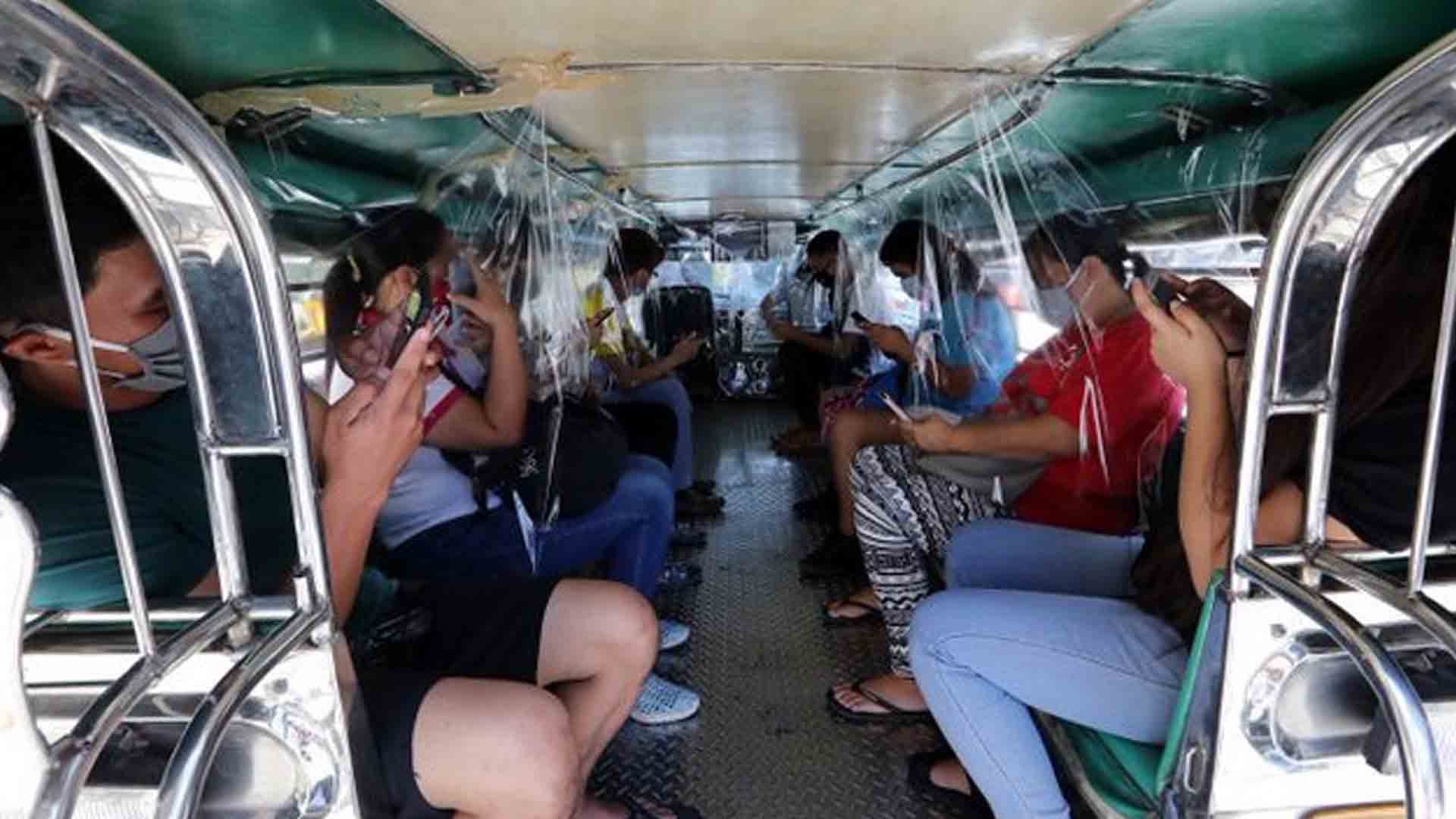The Department of Transportation (DOTr) on Thursday said the “no vaccination, no ride” policy in public transportation in the National Capital Region (NCR) is meant to avoid its complete shutdown as seen in the early months of the Covid-19 pandemic.
In a statement, the DOTr said such a shutdown may occur if more public transport personnel test positive for Covid-19.
“We are doing everything we can to maintain and keep our public transport operations safe and running. It will be a much heavy burden for commuters if we experience a repeat of public transport closures,” the DOTr said.
The department made the statement after the mandatory Covid-19 vaccine policy in public transportation was criticized for its legality and discrimination against unvaccinated individuals.
Aside from affecting public transportation, the department said a surge in Covid-19 cases may also result in the shutdown of affected businesses.
“If we do not act now, all industries and business sectors will be severely affected. Either the businesses will minimize workers, cut down on some parts of their business, retrench employees, or shut down to cut down on losses or pay off debts,” the DOTr said.
The policy requiring full vaccination against Covid-19 in public transport is not discrimination but a means to protect public health, the agency said.
“We would also wish to ensure the public that the implementation of the said policy will be both tolerant and firm,” the DOTr said.
The policy’s legal basis includes the DOTr’s department order, the recent resolution by the Metropolitan Manila Development Authority (MMDA), and the ordinances issued by all local government units (LGU) in the NCR that limit the mobility of the unvaccinated.
“To be clear, there is no directive to prohibit travel. Unvaccinated individuals are allowed to travel by using other means aside from public transport. Even the Department Order of the DOTr has exceptions,” the DOTr said.
It said the policy also does not violate Republic Act 11525 which states that vaccine cards shall not be considered as an additional mandatory requirement for educational, employment and other similar government transaction purposes.
“Access to public transportation is not among those enumerated in the prohibition. The Administrative Code prevails, which mandates DOTr to provide safe transportation services to the general public,” the DOTr said.
The policy is also in line with the order of President Rodrigo Duterte to restrict the movement of the unvaccinated in the NCR due to the high number of coronavirus cases.
Beginning Monday, only fully vaccinated individuals will be allowed to take public transportation in the NCR following the issuance of Department Order No. 2022 – 001 of the DOTr.
Exempted from the policy are individuals with medical conditions that prevent full Covid-19 vaccination and those who will procure essential goods and services as evidenced by a medical certificate or a barangay health pass.
‘Out of line’
Albay Rep. Joey Salceda, chairman of the House Ways and Means Committee, said the issuance of DO No. 2022-001 was clearly “out of line with the most fundamental right to mobility.”
“Citing Section 12 of Republic Act No. 11525 very clearly states that we cannot make vaccination certificates a requirement for availing of government services, and at the very least, the DO will violate that in the case of the MRT, and the EDSA Carousel,” Salceda said.
He said the point of vaccination is to help keep the economy open.
“With 58 million Filipinos still without vaccines, restricting their mobility is nowhere near allowing the economy to operate,” Salceda said.
He said before imposing restrictive policies, the government should guarantee that anyone who wants a vaccine can get one.
“As such, the means to get a vaccine have to be widely available and with a special preference towards the poor. Otherwise, it could deny access to basic public services among the poor who want to get vaccinated, but whose LGUs have not reached them yet,” he said.
Salceda also urged the government to get the national vaccination database in order.
“Even my own first dose was not recorded in the online vaccination certificate. It’s extremely easy to fake the LGU-issued vaccination certificates. And if any unvaccinated person is able to slip past the checks with a fake certificate, then the policy loses its point,” he said
He called on the Metro Manila Council to launch aggressive vaccination campaigns that provide transportation and other incentives to underprivileged communities.
“It would be extremely unfair if those who want to get vaccinated but have limited access to them are denied public transportation. It will affect their livelihoods,” he said. (PNA)








